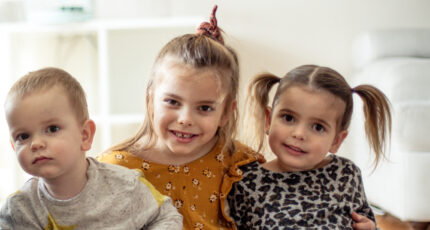Two major IPC adoption research studies published in England and Wales
IPC contributes to the evidence base around the additional needs of adoptive and Special Guardianship Orders (SGO) children
Two major adoption studies have been completed by IPC: published by the Department for Education in England and the National Adoption Service for Wales. Based on questionnaires completed by approximately 1,400 parents and carers, these studies highlight the significant emotional health and wellbeing needs of adopted children as well as the impact of national funding on improved access to support.
Today, research undertaken by IPC into support for children who are adopted was published by the National Adoption Service for Wales (NAS): read the report here. The other study also involved children with a Special Guardianship Order (SGO) and was published in March by the Department for Education: read the report here.
Each study explores, in relation to a significant if not fully representative population of adopted children (also some children subject to a Special Guardianship Order in England):
- What are their needs and attributes, including when presenting to local or regional support services?
- What has been the impact of national policy and allied funding streams (such as the Adoption Support Framework in Wales and the Adoption Support Fund in England) on access to support for these children and their families.
Findings from the two IPC-led studies are interesting to compare as they have explored some of the same questions with parents and carers in relatively similar timeframes and through similar (online survey) methods. However, the cohorts are not identical. For example: the Wales cohort is considered to be more representative of all adoptive children and families in that all such families known to regional adoption teams or voluntary adoption agencies were invited to participate. The England cohort is more specifically focused on adopted children and those with an SGO whose families have applied via their regional or local adoption support services for funded therapeutic support (under the Adoption Support Fund).
Key findings worth comparison relate to:
- Levels of child emotional health and wellbeing. Both studies confirm that some, indeed many adopted (and SGO) children have significantly greater emotional health and wellbeing needs compared with overall populations of similarly aged children in the UK. In the Wales study, the children’s average emotional health and wellbeing (as measured by the Strengths and Difficulties Questionnaire) was slightly better than in the England study, as would be expected given the cohort differences outlined above, but still significantly worse than normative samples of children of a similar age.
- Diagnosed conditions. Both studies indicated an increased prevalence of Attention Deficit Hyperactivity Disorder (ADHD) and Autistic Spectrum Disorder (ASD) in these populations of mostly adoptive and some SGO children. The prevalence of Foetal Alcohol Spectrum Disorder is raised in the England sample but not in the Wales sample when compared with conservative estimates of whole population diagnosis levels.
- Additional needs in school. In both cohorts, the reported incidence of children having a school-based plan relating to their additional needs was very high. For example, in the England cohort, approximately one half of the 1,000 plus children had a form of specialist education plan and approximately one third of those aged 11+ had a highly specialist Education, Health and Care Plan (EHCP). In the Wales cohort, approximately one third of the children had formally recognised additional learning needs and plans.
- Levels of parent emotional health and wellbeing. Both studies also measured parent/carer emotional health and wellbeing levels using the Short Warwick Edinburgh Mental Wellbeing Scale (SWEMWBS) and both identified significantly worse parent/carer emotional wellbeing compared with overall populations of adults.
Together, the studies provide compelling evidence of the significant additional needs of many, if not all, adoptive and SGO children and families.
In both jurisdictions, national policy and funding has recently been directed towards improving the wellbeing of adopted (and in England SGO) children and families and, in both jurisdictions, these studies suggest improving access to (grant funded) support. The Wales study paints a picture of grant funding being directed towards more preventative, earlier forms of help for families. The English study suggests that funding so far has been targeted on children with more significant emotional health and wellbeing needs.
The England study will report later this year about the extent to which ASF-funded therapeutic support actually improves outcomes for children and families receiving it in the short term, at around the end of a period of funded therapeutic support. Another further report will explore the extent to which outcomes are achieved in the medium term (approximately 6 months after an intervention has ended).
In the meantime, the findings represent a clear marker of the need for ongoing focus, funding and support for such interventions, and for more to be learned about ‘what works’ at what stage of an adoptive or SGO / care journey for and with children, young people and families, as well as with those who play a significant role in relation to them, for example schools and health services.
Find out more about these studies, contact:


Related News

Community-led public health research
21/06/2024
Community, statutory and academic approaches in Berkshire West, Oxfordshire and Buckinghamshire ICS
Related Services

Applied Research and Evaluation
We provide robust support to our clients by conducting comprehensive reviews and evaluations, identifying key strengths and opportunities for growth.






